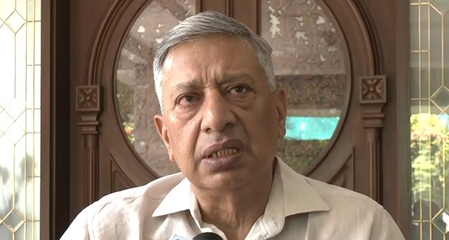
Islamabad, Sep 14 (IANS) The debate in Pakistan over data protection law as a fundamental necessity has grown intense with a report by Amnesty International detailing the expansive technology-enabled state surveillance in Pakistan, said a media report on Sunday.
The Amnesty report details the level of mass surveillance that the state is carrying out. Citizens’ phones and computers can be turned into listening devices; conversations, emails and location data can be accessed without oversight or judicial authorisation, and there is no legal redress for those targeted, said the article in Pakistani news website Dawn.com.
The writer, Usama Khilji, director of Bolo Bhi, an advocacy forum for digital rights, cautioned that the state carries out surveillance under its perceived notions of security, but the lack of legal cover for these invasive surveillance systems and the leaks of data – that make personal details into a market commodity – show how insecure and unsafe these systems really are.
A data protection law is a fundamental necessity to govern the right to privacy of Pakistanis that is afforded under Article 14 of the Constitution, and further expanded by several precedents in the superior judiciary, such as in the Benazir Bhutto case in 1988, the Ghulam Hussain case in 2010 and the Justice Qazi Faez Isa case in 2024. The Fair Trial Act, 2013, permits digital surveillance only after a warrant from a magistrate is granted; not the kind of mass surveillance that we are experiencing now, wrote Khilji.
The Amnesty report also highlights the violation of United Nations Guiding Principles on Business and Human Rights, which require both states and companies to respect human rights, including in their exports, he said.
The sale of spyware and surveillance technology shows how states such as the US, France, Canada, the UAE and China violate these principles by allowing the export of technology that carries out mass surveillance with no regard for citizens’ fundamental rights, said the media report.
As the Amnesty report recommends, there is a dire need for a comprehensive legal framework that regulates surveillance to ensure that it is targeted and proportionate, and subject to independent oversight. Parliament must play its role in conducting a transparent inquiry into the illegal surveillance systems in Pakistan, and legislate to regulate this industry under its oversight, it said.
Parliament must also move forward on the Personal Data Protection draft that has been debated since 2020, but has not yet reached a stage where it can be enacted, it said.
–IANS
rch/uk




